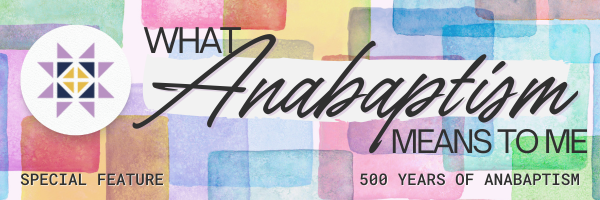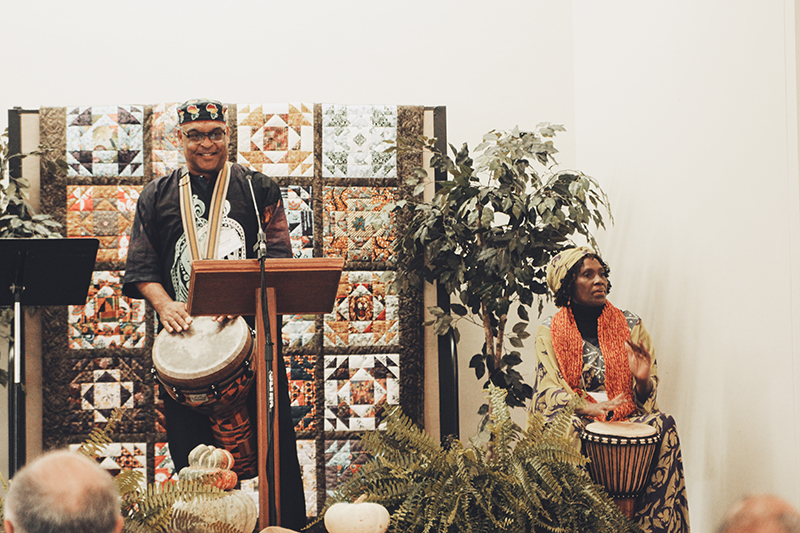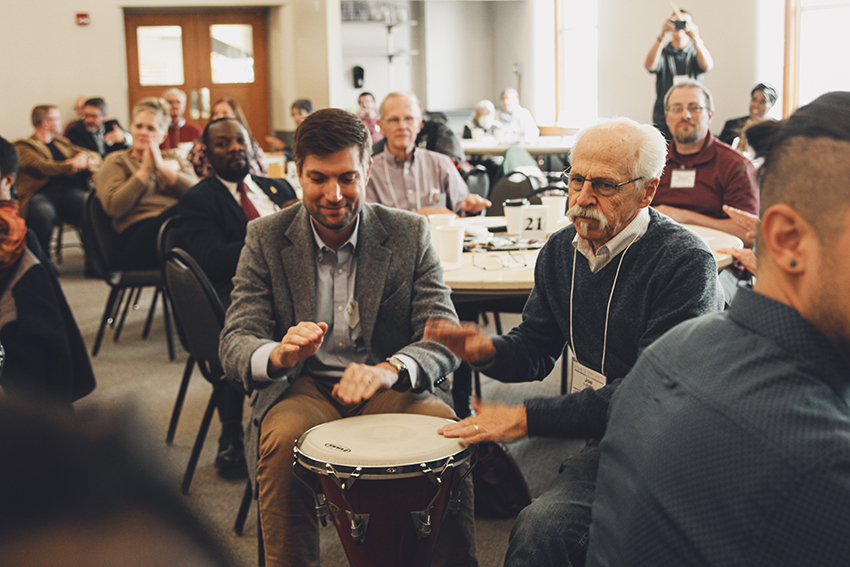by Angela Moyer Walter
Editor’s Note: We are deeply grateful to the Mosaic Mennonite Conference board members who concluded their terms at the end of 2025. This article is part of a short reflection series from these leaders on their service with the Mosaic board.
When I joined the Franconia Mennonite Conference (FMC) Board in 2015, shortly after moving to Allentown, PA, I couldn’t have imagined the journey ahead. I remember just a couple years later beginning to meet in Quakertown with Eastern District Conference (EDC) leaders to be intentional about leading the reconciliation process well. It was there that I met (current Board secretary) Jim Musselman (Zion Mennonite [Souderton, PA]) for the first time. It’s hard to believe that it was only in 2017!
One of the clearest memories I carry is the joy of the unanimous vote to merge FMC and EDC. When are Mennonites ever unanimous?! It felt like the movement of the Spirit, affirming the good, hard, and thorough work that had gone into forming what would become Mosaic Mennonite Conference. When the name Mosaic was chosen, it felt right, even obvious. It captured both our diversity and our hope, though we knew the work ahead to live into the name fully and honestly.
Then came the COVID-19 pandemic, the murder of George Floyd, political upheaval, and increased polarization. We had thought the big news of 2020 would be relocating the Conference offices on Dock Mennonite Academy’s campus! That move turned out to be a footnote in a year of stormy seas. Mosaic was a young, fragile boat trying to stay afloat in a tumultuous ocean.
And yet, there was life in our congregations, our Conference-Related Ministries, Partners in Ministry, and our staff. Talking about the chaos of that time could be overwhelming, but when we talked about Mosaic, there was always hope. God was moving among us.
God has provided Mosaic with many talented board members, gifted committee members, and terrific staff and executives in Stephen Kriss and Marta Castillo. God has continued to call pastors and leaders to be credentialed and equipped, and the work has flourished.
Now, Mosaic is five years old, and we are a little sturdier even when the world around us seems overwhelming. We have developed a vision, mission, strategic plan, centering identity document, and a guide to share our priorities. Though the work ahead is significant, the way is made by walking. I trust that God will remain faithful, just as she has been up to this point.
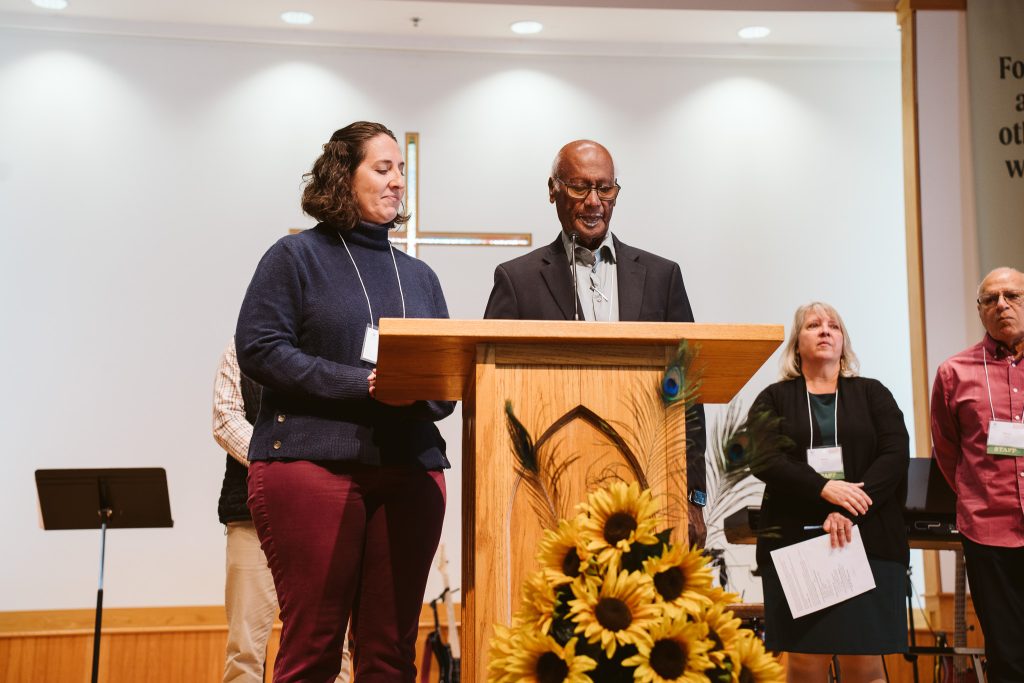
Something I’ve learned over these years on the board is to listen more deeply. Not only to what people say, but to the lived experiences behind their perspectives. Intercultural work must be prioritized, because it is difficult and it can be easy to abandon. Yet, scripture doesn’t give us the option to ignore it. Revelation 7:9 shows all peoples gathered before the throne. Why is it so hard for the Church to reflect that reality? It’s slow, humbling work, but when our posture is right, God multiplies our efforts. This is what we are experiencing in Mosaic, and it is becoming contagious.
Intercultural work can stir fears about what we might lose, but it’s really an invitation to mutual transformation—to become more like Christ and more fully the people God created us to be. It embraces what we love about our cultures and adds to them, rather than erasing them.
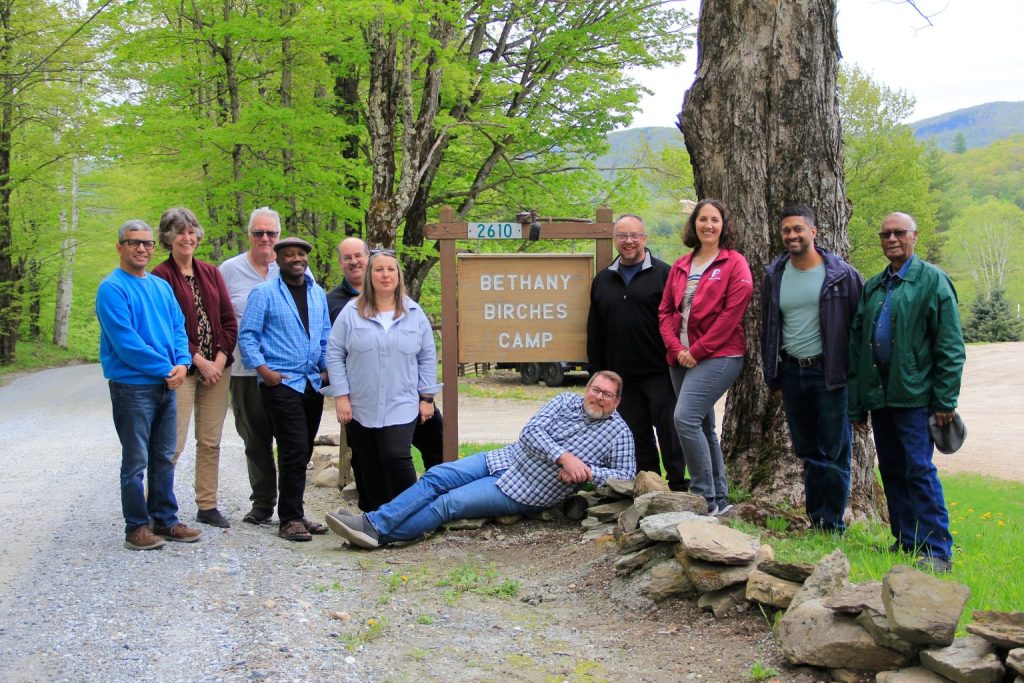
Traveling to visit leaders and congregations across the Mosaic spectrum has shaped me profoundly. I often return to César García’s challenge in The Courage to Love: Can we love and respect across differences? Can we value diversity not as a threat, but as a fuller witness to the unity of Christ? Can we lay down the impulse for power and control toward uniformity and instead embrace curiosity? I hope Mosaic continues to wrestle with these questions and trusts the Spirit to guide and lead us. Let’s be people of The Way, not a destination.
Meghan Larissa Good’s sermon at the 2025 Fall Delegate Assembly captured this spirit beautifully. She reminded us that Anabaptism has so much good to offer, and we must practice humility and get out of our own way so that others can share their gifts within this story. Together we are be transformed into the likeness of Christ. God is already doing this this among us—will we not perceive and embrace it?
Ministry among disinvested urban communities, people with disabilities or trauma, and children has grounded me during my time on the board. There is more to do so these ministries—and others across Mosaic—can fully thrive. But I see hope, and I see mutual transformation.
God’s Kingdom is an upside-down kin-dom, already and not yet. It has been an incredible privilege to serve, to learn, and to lead alongside such faithful people. I step away now with gratitude, excitement, and trust. I am excited for Roy Williams to become Moderator and for all of Mosaic to know him better. It has been a joy to work alongside him for years.
God is up to something in Mosaic. I look forward to watching, praying, and cheering from a new vantage point.

Angela Moyer Walter
Angela Moyer Walter is former Moderator of Mosaic Conference, Co-pastor at Ripple Church in Allentown, PA, and an occupational therapist at Good Shepherd Rehabilitation. She enjoys long summer evenings with family and friends and watching the Philadelphia Phillies.
Mosaic values two-way communication and encourages our constituents to respond with feedback, questions, or encouragement. To share your thoughts or send a message to the author(s), contact us at communication@mosaicmennonites.org.

